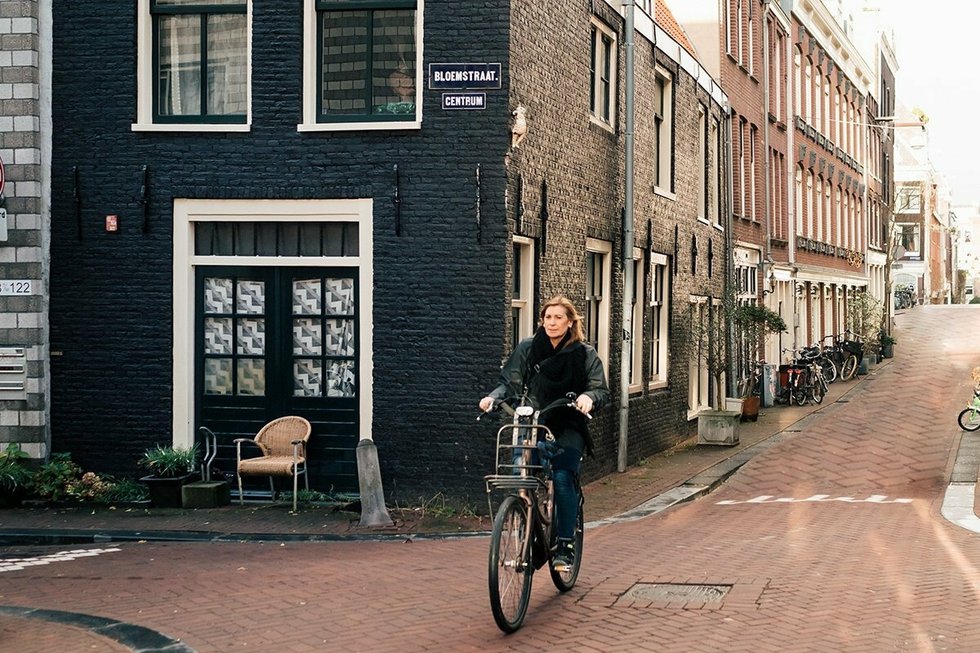Working in the Netherlands: an expat’s guide to local quirks
Sep 15, 2020
5 mins


Rédactrice indépendante - Amsterdam
After completing my master’s degree in translation in Paris and Brussels, I landed my first job in Amsterdam in July 2015. What initially began as a six-month contract and a chance to round out my international experience, turned into something else entirely. I soon had a permanent contract, a new flat, a group of expat friends – and even a Dutch girlfriend to help me to decipher the local way of life.
Now that I’ve been here for five years, I feel it’s the perfect time to look back on what makes Dutch workplaces so unique and to consider the various cultural differences I’ve noticed while living here.
A relaxed sense of hierarchy
Since moving to Amsterdam, I’ve worked at four companies, from startups to scale-ups and even one that filed for bankruptcy. I feel that I have a much deeper understanding of how the Dutch office works now. First of all, a word about hierarchy: most of my managers were noticeably young, and “Dutch directness” meant everyone was on familiar terms. While this was my experience, it’s probably different for those working at more traditional companies.
Still, things here are way more relaxed. Dutch employees are automatically on a first-name basis, unlike in some other countries. Maybe that’s why I’ve always found my Dutch managers to be so accessible and easy to talk to. In practical terms, this translates into freedom of expression. In the Netherlands, you’re encouraged to give your opinion and share your ideas, regardless of your place in the organizational hierarchy, which is generally more horizontal than vertical.
They don’t beat around the bush
The Dutch are known for being very open and direct – and that extends to the office. I first became aware of this when my manager flatly refused to speak to a colleague because she did not “have a minute” to talk. My first instinct would have been to listen politely, gritting my teeth at the untimely interruption.
I’d be lying if I said this curt approach was easy to take at the beginning. And yet, it’s something I’ve come to appreciate and value. During one-on-one meetings with my superiors, I’ve always felt free to give honest feedback without sugarcoating any issues or problems I might have. One thing’s for sure, you’ll never find yourself hiding behind the safety of anonymous surveys in the Dutch office.
Masters of the work-life balance
A typical work week in the Netherlands is 38 hours, with the majority of full-time jobs ranging from 36 to 40 hours. Be that as it may, the Dutch work an average of 29 hours a week. How is that possible? The answer is simple: part-time contracts are common.
I’ve often struggled to manage my stress levels when trying to get through my to-do list before Friday at 6 pm. My partner, who is Dutch, has a more balanced view of things: “If you can’t finish a project in 40 hours, that’s because something is clearly off in the brief you were given.”
In general, I’ve noticed that my Dutch colleagues are adept at balancing their private and professional lives. They know how to set boundaries – and stick to them. “Why work more than is necessary? Why do overtime that you won’t be paid for?” I have to admit, that seems sensible.
“Work hard, play hard” is a mantra for many UK companies, especially start-ups and fast-paced sectors such as banking and finance. Between going for drinks on a Monday night, a gig on Wednesday, working out every other day, and trying out a new restaurant each Friday, the Dutch typically have no time to stay late at the office.
When the clock strikes six, it’s Bootcamp time!
Keeping fit is a big part of start-up culture around the world. The Dutch, who are known for being health conscious, have tapped into this trend to their advantage. Companies offer fitness classes, such as Bootcamp, and add them to the list of employee perks, right next to free lunches and Friday drinks, also known as “VrijMiBo”. At six o’clock sharp every evening, most of my Dutch colleagues lace up their trainers to join the office fitness class. Curious to see a Dutch Bootcamp session, I tried it a few times and now go three times a week.
“Papadag”, or daddy’s day
While it’s relatively common for women in other European countries to work flexible schedules after giving birth, the Netherlands encourages fathers to take the same approach. That’s what “papadag,” or daddy’s day, is all about.
In 2016, almost 50% of young Dutch fathers reported taking a day off at least once a week to take care of their children. In my office, many fathers have also moved to a four-day working week to even out parenting responsibilities at home. A friend even told me that when she was a child, her father ended his career to stay at home with the children––something that she felt was perfectly natural.
Lunch on the run
Every morning, the office gathers around the coffee machine or in the canteen to enjoy breakfast supplied by the company. The spread is impressive: yogurt, muesli, cereal, orange juice, and even non-dairy milk. As the Dutch generally love a good deal, this gesture is much appreciated by employees.
For lunch, most of my coworkers have a “toasti”, which means there is always a long queue for the toastie maker. Thanks to the toastie’s prime role in Dutch workplace culture, the bread selection is downright impressive. Sadly, the microwave is really only used by expats warming up their leftovers from the night before.
And while birthday celebrations are dreaded by many UK employees, the Dutch take all the pressure off. Basically, if it’s your birthday, you bring the cake and serve it to your colleagues.
The language barrier
The Dutch are also known for being proficient in English. From a young age, Dutch children are exposed to foreign languages, especially English, because subtitles are preferred overdubbing for films and TV series.
That said, their open and relaxed nature is tested if the office where they’ve been working suddenly goes international and switches the official language to English. If you’re lucky enough to be two or three expats in a group, they will certainly speak English, but if you are alone, don’t expect them to make an effort. I speak from experience. Let’s just say that time doesn’t exactly fly when you’re stuck in a group having a lengthy conversation in Dutch and you can’t understand a word.
In an Amsterdam-based company where I was the very first expat to be hired, my onboarding was exclusively in Dutch. At that moment, I was so grateful for the Flemish classes I had taken back in high school.
Office relationships: trouble fitting in
To help me write this article, I decided to find out more from my expat friends. One said something that sums up social interactions here: “What I find strange about the Dutch at work is that they are really very good at small talk, but it’s hard to get to know them at a deeper level.” It’s true. If I counted the number of close friends I’ve made in Amsterdam, the percentage is 90% expats and only 10% Dutch.
Dutch colleagues can develop pretty close relationships and companies are also big on team-building activities. Even so, it can be a struggle to build anything more than a cordial professional relationship with them.
After five years in Amsterdam, there are more than a few things I’ve come to treasure: honesty and directness, a balanced life, and approach to parenting, as seen with the “papadag”. For my part, I have fully embraced the super-active lifestyle and full on the social calendar of the Dutch, except that I share it with my expat friends. And to break the language barrier, I take Dutch language classes every year. It’s not the easiest of languages, but practice makes perfect.
Translated by Andrea Schwam
Photo for WTTJ, by Clémentine Latron
Follow Welcome to the Jungle on Facebook, LinkedIn, and Instagram, and subscribe to our newsletter to get our latest articles every day!

More inspiration: Relocate for work

Fancy moving to Dublin, Ireland to work? Here’s what you can expect
Discover what makes Ireland's capital a top destination for professionals worldwide.
Apr 16, 2024

Moving to NYC for work? Here's what you need to consider
What is the reality of living and working in The Big Apple? The truth has to lie somewhere between Sex and the City and Taxi Driver.
Jan 10, 2024

Fact or fiction: graduate programs in Europe are worth it
As soaring US tuition cost has caused a debt crisis, Americans are turning their eyes to graduate schools in Europe...
Apr 12, 2023

The 2023 guide to living and working in Portland, Maine
As the cost of living in East-Coast naves like Boston and New York keeps rising, Portland is emerging as a top choice for big-city defectors.
Mar 21, 2023

Moving to the country in a post-pandemic world
As remote and flexible work edges toward ubiquity, roughly half of Americans would already prefer a rural area to a city or suburb
Feb 13, 2023
The newsletter that does the job
Want to keep up with the latest articles? Twice a week you can receive stories, jobs, and tips in your inbox.

Looking for your next job?
Over 200,000 people have found a job with Welcome to the Jungle.
Explore jobs